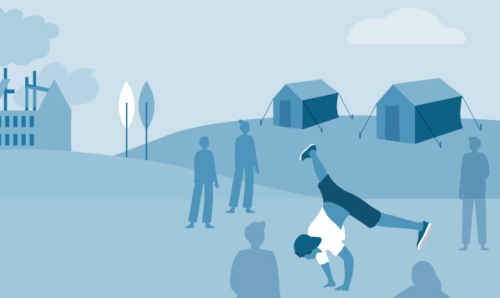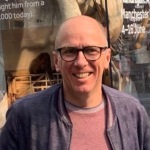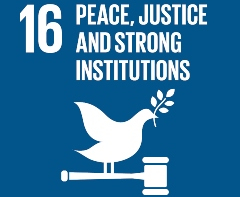.jpg)
Supporting, developing and promoting artists from conflict zones
Theatre artists in war zones around the world suffer from a sense of disconnection. Research at The University of Manchester is mobilising, empowering and connecting people living in some of the world’s toughest and most troubled environments.
This work delivers on the UN Sustainable Development Goal 16: promote peaceful and inclusive societies for sustainable development, provide access to justice for all and build effective, accountable and inclusive institutions at all levels.
Art can be used in places of conflict as a tool for positive change, but artists living in these conditions don't always have the support to make it happen. There was a clear need to not only provide a platform for these artists, but create a structure that would help them to be successful and future-proof.
Empowering artists
The In Place of War (IPOW) project focused on empowering artists working in conflict zones across the world. Now an international arts organisation, IPOW works with existing grassroots organisations in refugee camps, war-affected villages, towns under curfew, cities under occupation and refugee communities.
It has provided music equipment to transform venues in the West Bank, rallying more than 1,000 artists from 25 countries though collaborations and performances, and created an all women ‘super-group’ from countries including Zimbabwe, Brazil and Colombia.
Moving from research to charity
A central concern of the initial research was to enable networks of artists to draw on their expertise and develop systems for them to sustain their work. It provided a means to critique existing practices, with the aim of supporting the improvement of artistic responses and ensuring that donor support is more sensitive to local contexts.
Building on the principle that expertise is located in the experience of those living in sites of violence and disadvantage, IPOW supports creative communities to sustain their practice through creative spaces, education programmes and artistic collaboration.
James Thompson / Professor of Applied and Social Theatre
It also identified the need for support for emerging artists in order to enhance their capacity to sustain their practice and develop livelihoods from their artistic work – this prompted the transformation of IPOW into an arts organisation.
IPOW now employs artists, freelancers and a range of associates. It has helped to set up ten new arts organisations and companies including ‘In Place of War USA’, as well as music venues in South Africa, Uganda and Palestine.
An award-winning model
The first phase of the project involved the identification of more than 300 arts organisations in war zones including Sri Lanka, the Occupied Palestinian Territories, the Democratic Republic of the Congo and Kosovo, as well as refugee arts projects in the UK. The research led to a model for supporting, documenting and providing a platform for these artists.
Based in the School of Arts, Languages and Cultures, IPOW won the 'excellence and innovation in the arts' award at the Times Higher Education annual award ceremony in 2010.
Podcast: Supporting, developing and promoting artists from conflict zones

Listen to The University of Manchester’s Dr Nic Gowland interview some of our leading experts about how their research is helping to deliver the UN Sustainable Development Goals for global health, equality and sustainability.
Download the Supporting, developing and promoting artists from conflict zones podcast transcript (PDF, 584KB).
In Place of War (Cockcroft Rutherford Lecture)
Professor James Thompson, Humanitarian and Conflict Response Institute Executive Director and Professor of Applied and Social Theatre, gives the prestigious Cockcroft Rutherford Lecture on his In Place of War project, which explores how artists that experience armed conflict interact with events that occur around them.


